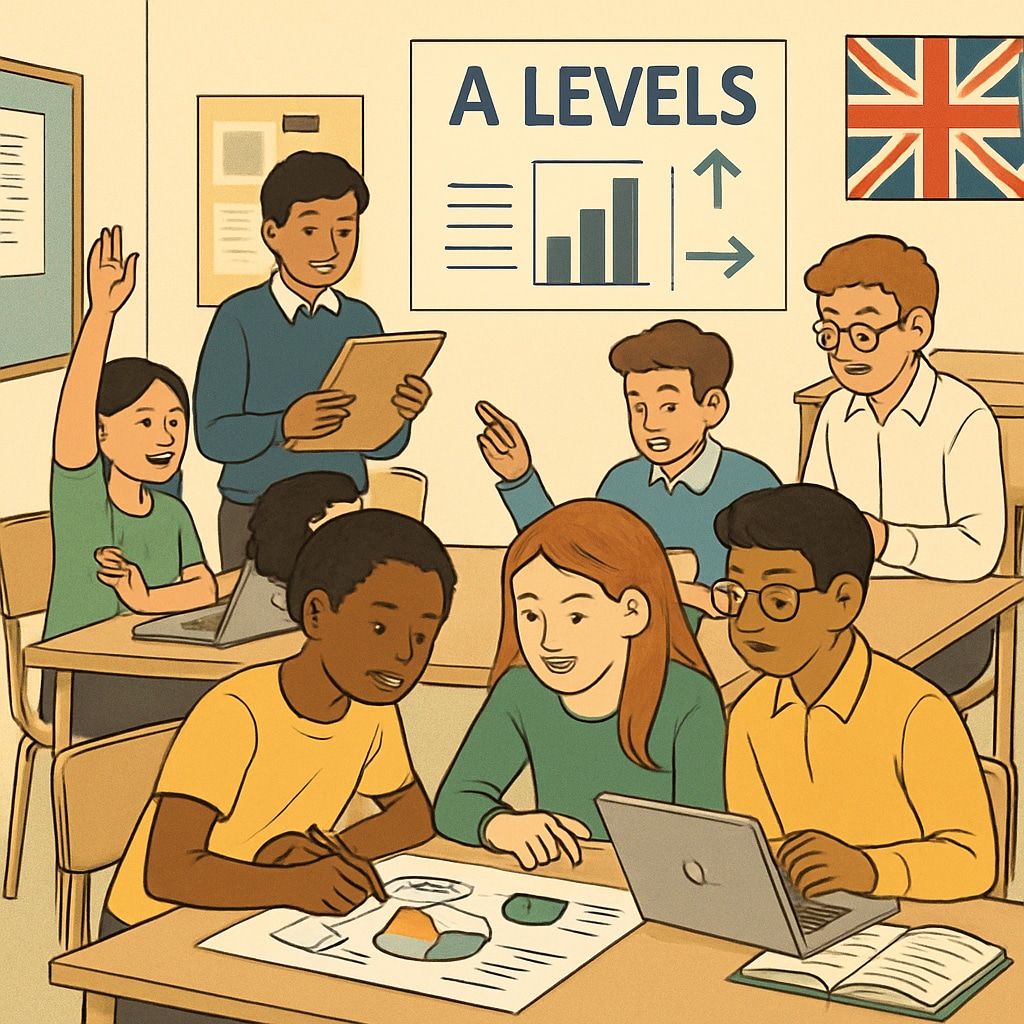Turkey’s exam-based education system and the UK’s flexible A Levels structure offer two contrasting models of learning, each with unique advantages and challenges. While Turkey emphasizes centralized examinations to evaluate students on a broad spectrum of subjects, the UK empowers students to select specific subjects based on their interests and career aspirations. This article delves into these differences, examining how exam pressure and student choice impact educational outcomes, and proposes reforms to guide Turkey toward a more skill-oriented approach.
The Centralized Examination System in Turkey
Turkey’s education system is deeply rooted in a centralized examination framework, where students are required to pass rigorous nationwide tests to progress to higher education. This system mandates proficiency across a wide range of subjects, often leading to overwhelming exam pressure. As a result, students focus on rote memorization rather than developing critical thinking or creative problem-solving skills.
For example, the YKS (Higher Education Institutions Examination) is a multi-tiered exam shaping students’ futures. Success hinges on mastering subjects that may not align with individual interests or strengths. While this approach ensures standardized evaluations, it limits students’ ability to pursue specialized fields early on.

The UK’s Flexible A Levels Structure
In stark contrast, the UK’s A Levels system offers students the freedom to select three to four subjects tailored to their passions and career goals. This flexibility fosters a deeper engagement with chosen disciplines and encourages independent learning. Students can focus their efforts on areas directly relevant to their future pursuits, enhancing motivation and reducing unnecessary academic stress.
Moreover, the UK’s system integrates coursework, practical assessments, and project-based learning alongside exams, promoting diverse skill development. According to Wikipedia, this model is designed to prepare students for university-level education while nurturing critical thinking and creativity.

Impacts on Student Development
The stark differences between these systems are reflected in student outcomes. Turkey’s exam-based approach often creates a high-pressure environment, where students feel their entire future depends on one test. This can lead to anxiety and burnout, as well as a narrow focus on academic achievement over holistic development.
Conversely, the UK’s flexible system emphasizes personal growth, allowing students to explore their interests and develop transferable skills. As a result, UK students are often better prepared for higher education and the workforce, equipped with both specialized knowledge and broader competencies.
Reforming Turkey’s Education System
To address the challenges posed by Turkey’s exam-driven model, strategic reforms are necessary. The following recommendations aim to foster a more balanced and inclusive education system:
- Introduce Subject Specialization: Allow students to narrow their focus in high school, selecting subjects aligned with their interests and career aspirations.
- Incorporate Diverse Assessment Methods: Move beyond standardized exams to include coursework, projects, and practical assessments that evaluate a broader range of skills.
- Promote Skill Development: Integrate modules on critical thinking, communication, and creativity into the curriculum to prepare students for real-world challenges.
- Reduce Exam Pressure: Implement a cumulative evaluation system that spreads assessments over several years, alleviating the stress of a single high-stakes test.
These reforms can create a more student-centered approach, similar to the UK’s A Levels system, enabling Turkish students to thrive academically and personally.
Conclusion
The comparison between Turkey’s centralized examination system and the UK’s flexible A Levels highlights the importance of aligning education with student needs and aspirations. By transitioning to a model that emphasizes choice, skill development, and diverse assessments, Turkey can reduce exam pressure and foster a generation of well-rounded, capable individuals. This shift from constraint to freedom in education is not just beneficial—it’s essential for preparing students for the complexities of the modern world.
Readability guidance: Short paragraphs and lists have been used to ensure clarity. Overarching ideas are connected with transition words like “however,” “for example,” and “as a result.” Passive voice has been minimized to maintain an engaging tone.


